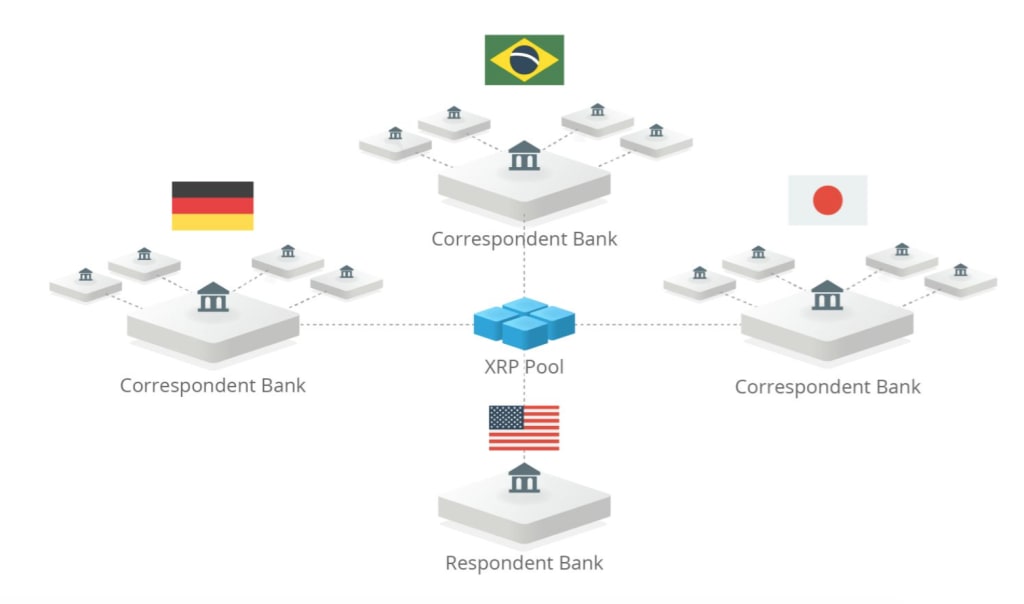In-Depth Look at Ripple and its Potential for Cross-Border Transactions
Transforming Global Remittance: How Ripple Could Reshape the Landscape of Cross-Border Payments

In the vast landscape of digital currencies, Ripple (XRP) has carved out its unique niche. Unlike many other cryptocurrencies that focus primarily on becoming a new form of currency or a store of value, Ripple aims to improve the efficiency of cross-border transactions. This article dives deep into the world of Ripple and examines its potential to revolutionize the way we handle international remittances.
Understanding Ripple and XRP
Ripple, the technology, and XRP, the cryptocurrency, are often used interchangeably but they are distinct entities. Ripple refers to the digital payment protocol developed by Ripple Labs Inc., while XRP is the digital currency that facilitates transactions on the Ripple network.
Ripple was designed to enable quick, low-cost international money transfers, making it an attractive tool for banks and other financial institutions that regularly deal with cross-border transactions. Unlike the traditional SWIFT system, which can take days to process an international payment, Ripple can finalize transactions within seconds and at a fraction of the cost.
Ripple's Role in Cross-Border Transactions
Ripple operates as a real-time gross settlement system (RTGS), currency exchange, and remittance network. It's built around a shared, public ledger that uses a consensus process allowing payments, exchanges, and remittances to be done in a distributed process.
For example, if a person in the US wants to send money to someone in Japan, the process with traditional banks using the SWIFT system can be lengthy and costly. With Ripple, the sender's dollars are converted into XRP and then sent to the receiver's bank where they are converted into yen. The entire process takes seconds and reduces the cost and counterparty risk significantly.
Real-Life Examples of Ripple's Usage
Santander Bank: One of the world's leading banks, Santander, launched the first mobile app for international forex transactions using Ripple's technology. The app, known as One Pay FX, provides customers a less expensive and more straightforward way to send money internationally.
Standard Chartered Bank: This major financial institution introduced Ripple-powered corporate payments for cross-border transactions, allowing its customers to enjoy real-time, transparent, and traceable international payments.
SBI Remit: In collaboration with SBI Remit, the largest money transfer provider in Japan, and Siam Commercial Bank in Thailand, Ripple is facilitating instant remittance payments between the two countries.
Regulatory Challenges and Ripple
Ripple has not been without its challenges. Regulatory issues, especially in the United States, have presented hurdles. The U.S. Securities and Exchange Commission (SEC) has an ongoing lawsuit against Ripple Labs, asserting that XRP is a security and not a currency. This lawsuit's outcome could have significant implications for Ripple's future in the US.
The Future of Ripple in Cross-Border Transactions
Despite regulatory challenges, Ripple's potential in transforming cross-border transactions remains substantial. As per the World Bank, remittances to low and middle-income countries reached $540 billion in 2020. This suggests a massive market for Ripple's quick and cost-effective transaction solution.
Moreover, the increasing adoption by major financial institutions worldwide adds to Ripple's credibility and paves the way for broader acceptance and implementation. Given the increasing globalization and the need for more efficient international transaction methods, Ripple presents an attractive solution.
Conclusion
In a world where the demand for quick, cost-effective, cross-border transactions is rapidly growing, Ripple offers an intriguing proposition. By using blockchain technology to reduce the time and cost of international remittances, Ripple has the potential to profoundly disrupt the traditional banking industry. The future of Ripple is undoubtedly exciting, and its impact on cross-border transactions could be transformative.
About the Creator
Alden Pole
Delving into captivating topics, I share insightful content that informs and inspires. Join me on this journey of discovery and let's explore the wonders together!
Enjoyed the story? Support the Creator.
Subscribe for free to receive all their stories in your feed. You could also pledge your support or give them a one-off tip, letting them know you appreciate their work.






Comments
There are no comments for this story
Be the first to respond and start the conversation.